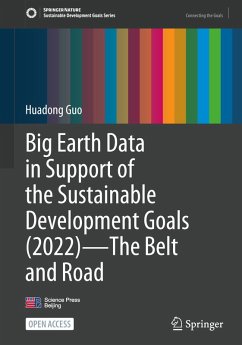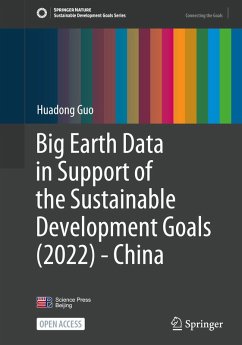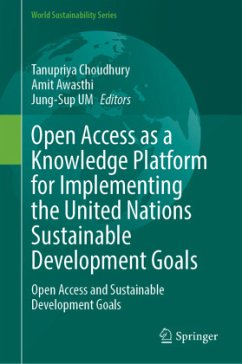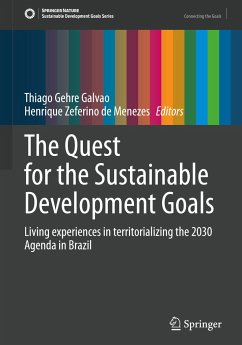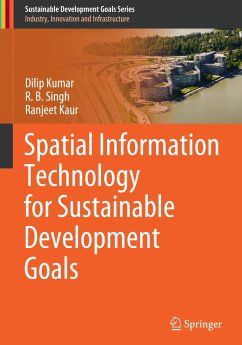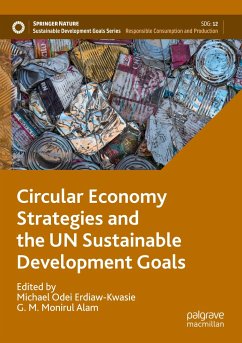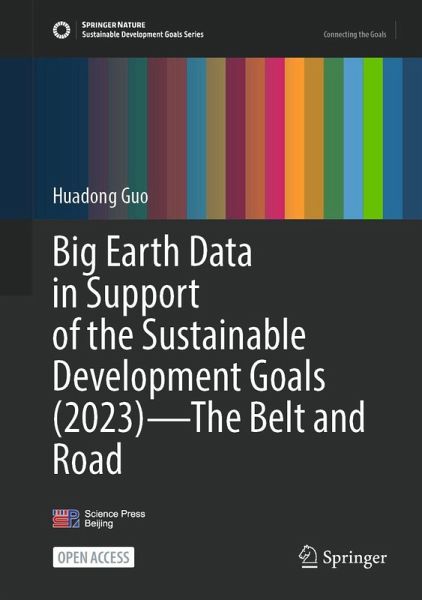
Big Earth Data in Support of the Sustainable Development Goals (2023) - The Belt and Road
Versandkostenfrei!
Versandfertig in 6-10 Tagen
38,99 €
inkl. MwSt.

PAYBACK Punkte
19 °P sammeln!
This open-access book presents innovative applications of Big Earth Data through a set of comprehensive case studies conducted globally and in countries and regions along the Belt and Road. The studies demonstrate how advanced data methods can be employed to monitor and evaluate indicators for seven Sustainable Development Goals (SDGs): zero hunger (SDG 2), clean water and sanitation (SDG 6), affordable and clean energy (SDG 7), sustainable cities and communities (SDG 11), climate action (SDG 13), life below water (SDG 14), and life on land (SDG 15). In addition, the book explores the complex ...
This open-access book presents innovative applications of Big Earth Data through a set of comprehensive case studies conducted globally and in countries and regions along the Belt and Road. The studies demonstrate how advanced data methods can be employed to monitor and evaluate indicators for seven Sustainable Development Goals (SDGs): zero hunger (SDG 2), clean water and sanitation (SDG 6), affordable and clean energy (SDG 7), sustainable cities and communities (SDG 11), climate action (SDG 13), life below water (SDG 14), and life on land (SDG 15). In addition, the book explores the complex interactions among multiple SDG indicators.
The emphasis on Big Earth Data is particularly timely in view of pressing global challenges. Issues such as disaster risk reduction, climate change, food security, resource management, and environmental protection are inherently interconnected through Earth systems and processes that transcend political and social boundaries. Within thiscontext, the case studies highlight methodological advances in spatial information mining and integrated SDG evaluation, including analyzing synergies and trade-offs among SDGs through correlation studies, simulating interactions of multiple indicators under projected environmental, economic, and social scenarios, and developing integrated frameworks for regional SDG assessment. Taken together, these findings illustrate the potential of Big Earth Data to provide robust scientific evidence in support of policy formulation and decision-making at global, regional, and local levels.
The emphasis on Big Earth Data is particularly timely in view of pressing global challenges. Issues such as disaster risk reduction, climate change, food security, resource management, and environmental protection are inherently interconnected through Earth systems and processes that transcend political and social boundaries. Within thiscontext, the case studies highlight methodological advances in spatial information mining and integrated SDG evaluation, including analyzing synergies and trade-offs among SDGs through correlation studies, simulating interactions of multiple indicators under projected environmental, economic, and social scenarios, and developing integrated frameworks for regional SDG assessment. Taken together, these findings illustrate the potential of Big Earth Data to provide robust scientific evidence in support of policy formulation and decision-making at global, regional, and local levels.



